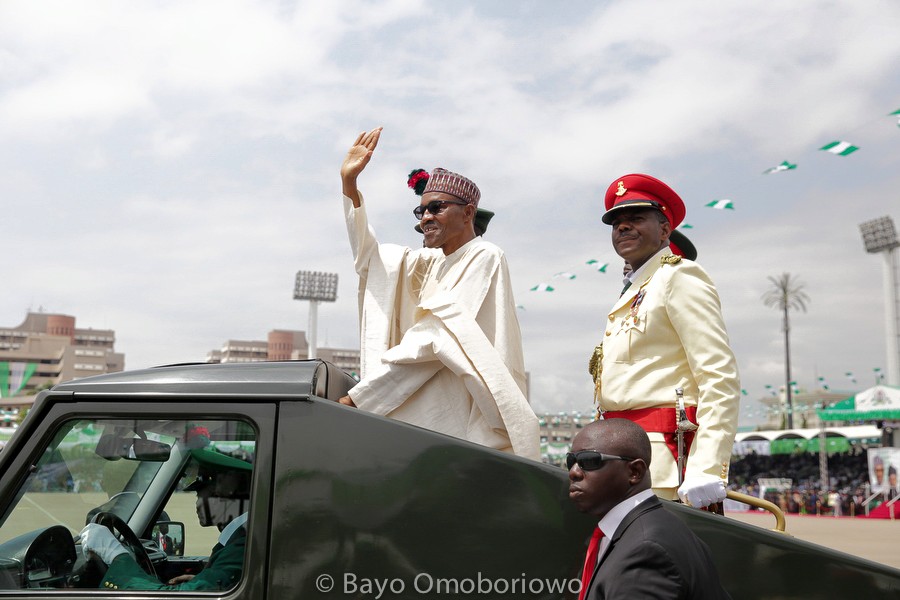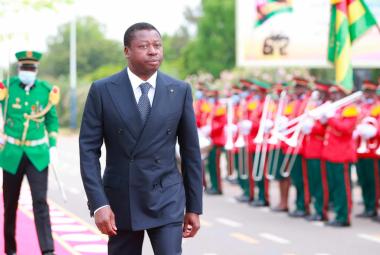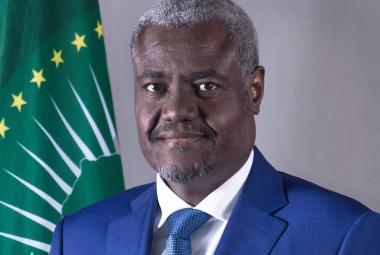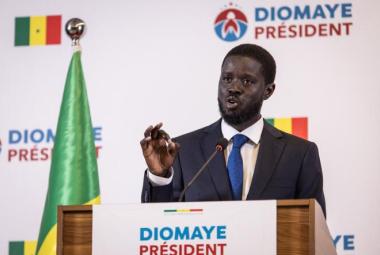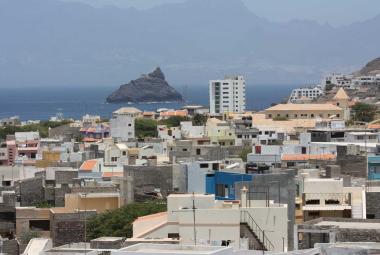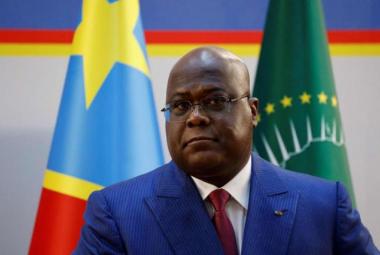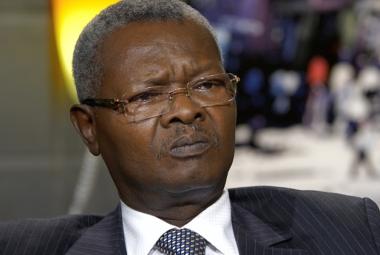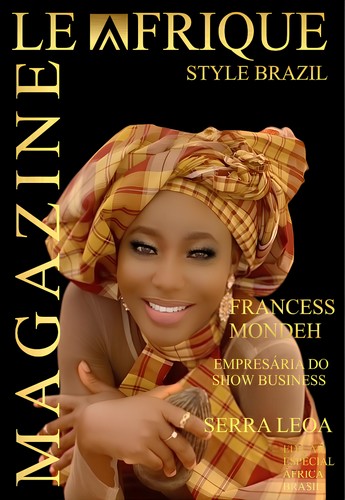The electoral campaign in Nigeria looks like a real long-distance race. It is the size of this great African country by its size and its population. Started in early October 2022, it should end on February 25, 2023. While waiting for the twenty or so candidates in the running to be decided by voters. With the election of the President of the Republic, there is also that of Governors and Deputies which makes 2023 an election year for Nigerians.
A total of eighteen candidates stood at the start of the presidential election to succeed President Muhammadu Buhari in Nigeria. But the country's traditional two-party system since the military refrained from continually interfering in socio-political life has regained its rights. And, beyond the country's two major parties that function in the American style, in this case All Progressives Congress (APC), the presidential party, and the Peoples Democratic Party (PDP), the opposition party, there are other small parties as well as independents who participate in these elections.
After two successive terms at the head of the country, between 2015 and 2023, President Muhammadu Buhari is awaiting the outcome of this long electoral campaign to know the name of his successor. His party, the APC, presented Bola Ahmed Tinubu to defend his colors while an old opponent in the person of Atiku Abubakar, of the PDP who returns to try his luck. But between its two candidates, there are for once, strong personalities who present themselves to Nigerians and pose as alternatives to the two traditional political parties which dominate the national political spectrum. They are Peter Obi of the Labor Party (LP), former candidate for Vice President of Atiku Abubakar in the past presidential election and Rabiu Kwankwaso of the New Nigeria Peoples Party (NNPP), former minister of defense and former governor of Kano, both aspiring to govern their country on the same basis as the candidates of the APC and the PDP.
The "Zoning" or "Zoning", a gentlemen's agreement that is shattered
For a long time, the various ethnic and political components of Nigeria had decided to adopt what was called the principle of "Zoning", which consists of a kind of tribal management of the federation, in a more modern version. But the 2023 presidential election saw this principle shattered in the designation of the various candidates. The gentlemen's agreement that had often prevailed no longer seems to be of the era. And for good reason, with the configuration of this presidential election, the presidency will not see alternating as before every two terms between a candidate from the North, mainly Muslim, and a candidate from the South, mainly Christian. For reasons of geopolitical balance and stability between all the communities that have in common the sharing of this vast territory. Unfortunately, for unacknowledged reasons, the country's major political blocs have decided to ignore this national geopolitical situation for the 2023 presidential election. The two candidates are certainly all Muslims, but one is from the North, namely Atiku Abubakar of the PDP and Bola Ahmed Tinubu of the southern ruling APC. Following President Muhammadu Buhari, also a Muslim.
The two mandates of Muhammadu Buhari: a liability for the PDP
In 2015, to defeat his predecessor and now former President Goodluck Jonathan, President Muhammadu Buhari focused his electoral campaign on two main themes: the fight against corruption and the fight against terrorism and insecurity. However, on these two concerns of the Nigerians, it can be said without any risk of being mistaken that the former General of the Army who had promised to put order and sweep the house of Nigeria, has failed miserably. And that's the least we can say.
President Muhammadu Buhari himself has always remained honest and equal to himself. To the point of declaring to King Charles III during a visit to the United Kingdom that he did not have a house in the United Kingdom and that he did not need one. However, the same cannot be said of those around him. Many Nigerians also criticize him not only for his laxity in managing the security crisis and socio-ethnic conflicts in Nigeria, but also the fact that he has been unable to do anything to prevent the spread of corruption, of terrorism and insecurity in his country during his two mandates.
An eventful campaign like a merciless war
The various candidates have invested in the means of communication to make their messages heard during this campaign. The traditional trips to the United States and the United Kingdom for the candidates and their staff have been followed by large deployments of digital means of communication, aimed at voters from the interior such as those of the Nigerian Diaspora whose weight counts a lot on candidate selection.
Bola Tinubu took over the "Broom", the standard bearer of President Muhammadu Buhari's previous campaign. But his opponents from the Atiku Abubakar camp were quick to mock him. Wondering what he could still do with his "Broom". Him, whose fortune was built by corruption. But on the side of Bola Tinubu, the adversaries do not fail to oppose the same arguments to the supporters of Atiku Abubakar concerning their champion. The supporters of the PDP go further by pointing the finger at the torchbearer of the "Broom party", as some Nigerians now call him, in this case Bola Tinubu, as having built his fortune around several traffics including that of dope. And Paul O. Ibe, one of Atiku Abubakar's communicators, does not go out of his way to brandish supporting documents and assert: “In 1999 Bola Tinubu Asiwaju Bola Ahmed Tinubu lied under oath in his Independent National Electoral Commission (INEC) form CF001 when he claimed to have attended The University of Chicago and Government College Ibadan. That was a blatant lie in 1999 and remains a lie in 2022 because he never attended those two institutions. The attached notarised document 1 proves beyond reasonable doubts that Tinubu lied under oath about attending the University of Chicago and by the interpretation of the Supreme Court forged documents pertaining to his claim of attending the University of Chicago and Government College, Ibadan. The certified true copy of his own affidavit (documents 2 to 5) is hereby placed side-by-side with the notarised document to show that he did not only lie on oath but forged the documents. Yes, it is 30 years since Bola Tinubu lied under oath, but crime does not rot ”.
Paul O. Ibe goes further by mentioning and insisting on the fact that his candidate's opponent has been involved in drug trafficking in the United States in the past. An involvement that will have cost him $460,000 in his time. And despite the challenge of Bola Tinubu's supporters, he does not budge, still brandishing his evidence to say that no lie from Festus Keyamo or anyone else can whitewash the indisputable fact that Tinubu has been charged with drug trafficking in the United States. Indeed, according to Festus Keyamo, Jurist, Critic and Activist, who is also a supporter of Bola Tinubu, the confiscation of the said sum was rather intended for tax payments and had nothing to do with any drug trafficking.
Following Bola Tinubu's intervention, the APC candidate for Chatham House, Doctor Victor Moïse, National Communications Secretary of the Atiku Abubakar Support Organization, said in a press release: "We watched with the utmost disappointment and shocking disbelief the lack of an atom of ability of APC presidential candidate Bola Tinubu to provide basic answers to direct questions put to him at Chatham House. The fact that Bola Tinubu could not provide answers to fundamental questions, including how to improve bilateral defense relations with the United Kingdom, but appealed to El-Rufai, Gbajagbiamila, Betta Edu & co to rescue him shows that Nigeria may be in for a major calamity ahead. In fact, the entire APC program at Chatham House was a show of shame and embarrassment for Nigeria. It is now clear to all Nigerians why Tinubu dodged the AriseTV TownHall debate. His mental capacities have shown a complete mark of deterioration, and he cannot cope with a one-on-one debate or conversation about his plans for Nigeria. Continuation of the APC government would be a major disaster for Nigeria. As the 2023 elections draw closer, we wish to appeal to Nigerians not to be deceived or misled by the APC to bring calamity upon the nation. We have had enough under President Mohammadu Buhari. Let us all support and vote as one people for His Excellency, Atiku Abubakar, an experienced politician, seasoned administrator, compassionate philanthropist and accomplished businessman to bring prosperity to every home”.
However, all this is far from impressing or destabilizing the candidate of the ruling party. He cheerfully continues his campaign by displaying his relaxation and his good nature tinged with a lot of humor and mockery, his trademark, towards his opponents.
While the major parties and their candidates send scandals in their faces and tear each other apart with blows of communication on social networks and in the traditional media, the others continue their campaign by trying to be heard by Nigerians that a third way is possible apart from the PDP and the APC.
Young people want to be heard
While the two main contenders are gerontocrats and veterans of Nigerian politics, the electorate is the opposite largely made up of young people. Young people who, in the best of cases, live on odd jobs in the large urban centers of the country, and in the worst of cases are unemployed and facing all kinds of difficulties to live. At 70, Bola Tinubu is extremely wealthy. At 76, Atiku Abubakar is just as wealthy. Ironically, it is an electorate made up of the overwhelming majority of poor people who are called to the polls to elect their President of the Republic.
Nigeria is a country where it is estimated that at least 60% of its population is under the age of 25. Young people are therefore the future of the country and their concerns should be at the center of the programs of all candidates. However, these young people have been left out of society's projects for several decades now. They are obviously tired of an increasingly aging political class that is struggling to renew itself, because money is a determining factor in all elections in Nigeria and in politics more than elsewhere in West Africa. West. But between the jeremiads and the recriminations, the same young people are unfortunately the first to run after the bags of rice and the wads of Naira, the Nigerian currency, to then go crying about corruption and bad governance.
Failing to be able to change something at the top of the state, the young people found their champion in the person of Peter Obi to send a very clear message. The popularity it enjoys among young people speaks volumes. And as in addition to the President of the Republic, it is also necessary to elect the Governors and the Deputies, it is necessary to hope for a beginning of change. But it would still be necessary that young people no longer content themselves with complaining and that they also organize themselves to go and vote massively. In comparison with the Presidential of 2019, the participation rate was 33%. With such a mobilization, the young people are not too likely to move the old people who dominate the political scene in Nigeria.
Waiting for a new dawn for Nigeria
Nigeria is not just a giant in West Africa. It remains a giant also in all of Africa. Even if we still continue to consider him a "colossus with feet of clay". It is the largest country on the continent with a population of nearly 219 millions in 2022. Despite its enormous potential and large youth population, it struggles to meet even some of its most pressing fundamentals needs. Despite the dynamism and innovation that can be observed there, the development of its economy, whose GDP per capita has fallen considerably compared to the trend in the 1970s, is a subject of major concern. Despite its wealth in hydrocarbons, the country is still struggling to ensure its self-sufficiency. The same is true of agriculture, a key sector to pull up all the others. The supply of electrical energy necessary for the operation of any activity and particularly that of companies still remains a burden for the Nigerian authorities. Many years after the critical songs of the indescribable Fela Anikulapo Kuti, NEPA has not changed much. And power cuts are still recurrent. The height of everything, according to “Foreign Policy”. “Nigeria holds the dubious palm of the economy with the highest dollar GDP per kilowatt of power grid capacity. Palm which testifies both to the improvisational talent of Nigerians and the country's inability to build infrastructure. This major oil producer which does not have adequate refining capacity and which produces a good part of its electricity by burning imported diesel is, to put it mildly, not making the most of its possibilities”.
The issues awaiting the new President of this giant of Africa are numerous and diverse. Among them, one of the most important is the fight against Boko Haram and all other terrorist or jihadist movements as well as the legendary insecurity that has stuck in Nigeria for a very long time. Needless to say, the growing insecurity currently witnessed in West Africa is, in large part, due to Nigeria's failure to transcend its internal socio-political divides to assume its role as 'Big Brother'. Like what, between Bola Tinubu, Peter Obi, Atiku Abubakar and all the others, the one to whom the Nigerians have entrusted the responsibility of leading this country will have done nothing if he does not raise a new Dawn. In any case, as long as he has the ambition to write a great page in the annals of the History of Nigeria.
By Daniel Yaoni



